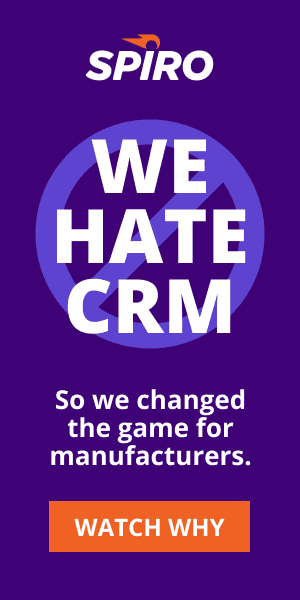The Essential Guide to Building an Internal Champion
Read carefully: this blog post may just save your sales job. In basically any type of sales, your career absolutely, positively depends on your ability to build internal champions.
Why Do I Need an Internal Champion?
You aren’t always going to get to meet the decision-maker right away. Or, they may have too many concerns about cost, or simply not want to put in the effort to purchase something new. Sometimes, you, a salesperson who they may not know or care about whatsoever, aren’t enough to convince them to buy (no matter how persuasive you may be). Employees at the company are likely to have already developed credibility, connections, and company intelligence- making them a great secret weapon for salespeople like us!
Use your sales magic to convince the people that the decision makers interact with everyday that they absolutely NEED your product. The big guys may have more influence individually, but if an employee loves your product and convinces their entire team to love it too, you have an army of people on your side.
Ok, But How?
The good thing is, that building an internal champion really isn’t rocket science. All it really takes is a targeted application of the sales skills you already have! There are 5 main steps to follow when building your internal champion:
1. Identify Your Target
Whatever you do, don’t half-ass this first step. If you do, there’s no point in moving on to the other steps. You need to make sure that this person has a few key attributes. These include: access to the decision-maker, true interest and need for your product, and the ability to tell a story. First off, if the person has absolutely no contact with the decision-maker, their influence is going to be very minor, no matter how much they love your product. Secondly, they need to truly believe in your product. This will motivate them to act as an advocate for you. Unless that investment is there on their side, there is little you can do. Lastly, they need to be able to tell a great story about your product. They need to communicate well, and be able to develop a sense of urgency and need for your product.
Additionally, make sure that you don’t have what is sometimes referred to as an “account friend”- someone who says yes to and supports everyone. You need a champion that is invested in you- not someone that is just a “yes-man” (or woman) by nature. Don’t just try to create an internal champion out of the first person you meet. Consider your options, and choose the best fit.
2. Tailor Your Approach
As most salespeople already know, one size doesn’t fit all. Since you already spent time carefully selecting your internal champion, you should know a bit about them as a person. Who are they at their company? What are their needs? How will your product help them personally? What is their style of relationship building?
Use the answers to these questions to guide you as you work with your internal champion. The importance of knowing their motivations cannot be overemphasized. And, no matter how awesome your product is and how it will solve all of their life problems, it’s still a good idea to make sure they actually like you as a person. No one wants to work with a jerk (especially if they don’t have to).
3. Provide Incentives
The cold, hard truth is, no one is going to put hours of work into a project unless there is something in it for them. Developing an internal champion is a two-way street. These incentives don’t need to be extravagant undertakings. A simple lunch out or coffee can do the trick. There are plenty of ways to keep your internal champion engaged if you use a little bit of imagination.
4. Provide the Tools for Success
Make sure you cover all the bases when preparing your internal champion. Most people know that you have to give your internal champion all the information they need about the product so that they have technical knowledge. But, even more importantly, don’t neglect the more personal side. Make sure they know your company’s story. This is what generally resonates with people in the end. Why was your company started? What is the bigger picture and overarching goal?
And, don’t forget that your internal champion is likely not a salesperson themself. They may not have the skills that you have developed throughout your sales career. So, make sure to rehearse with them, and help develop some of those skills.
5. Follow Up
Now, once you’ve prepared your internal champion, don’t just throw them to the wolves! Make sure that you check-in on them consistently, and find out if they need anything additional from you. Continue learning about their use case and needs, and if anything changes that you need to address.
Provide materials throughout the process that can help them convince the decision makers that they really do need your product. These materials can take on many forms: press articles, usage guides, or cool events that you are hosting!
In Conclusion
Building an internal champion takes some planning. But that’s because, in the end, they’re actually doing a lot of the legwork for you! If you follow these 5 steps, it should be a breeze.

